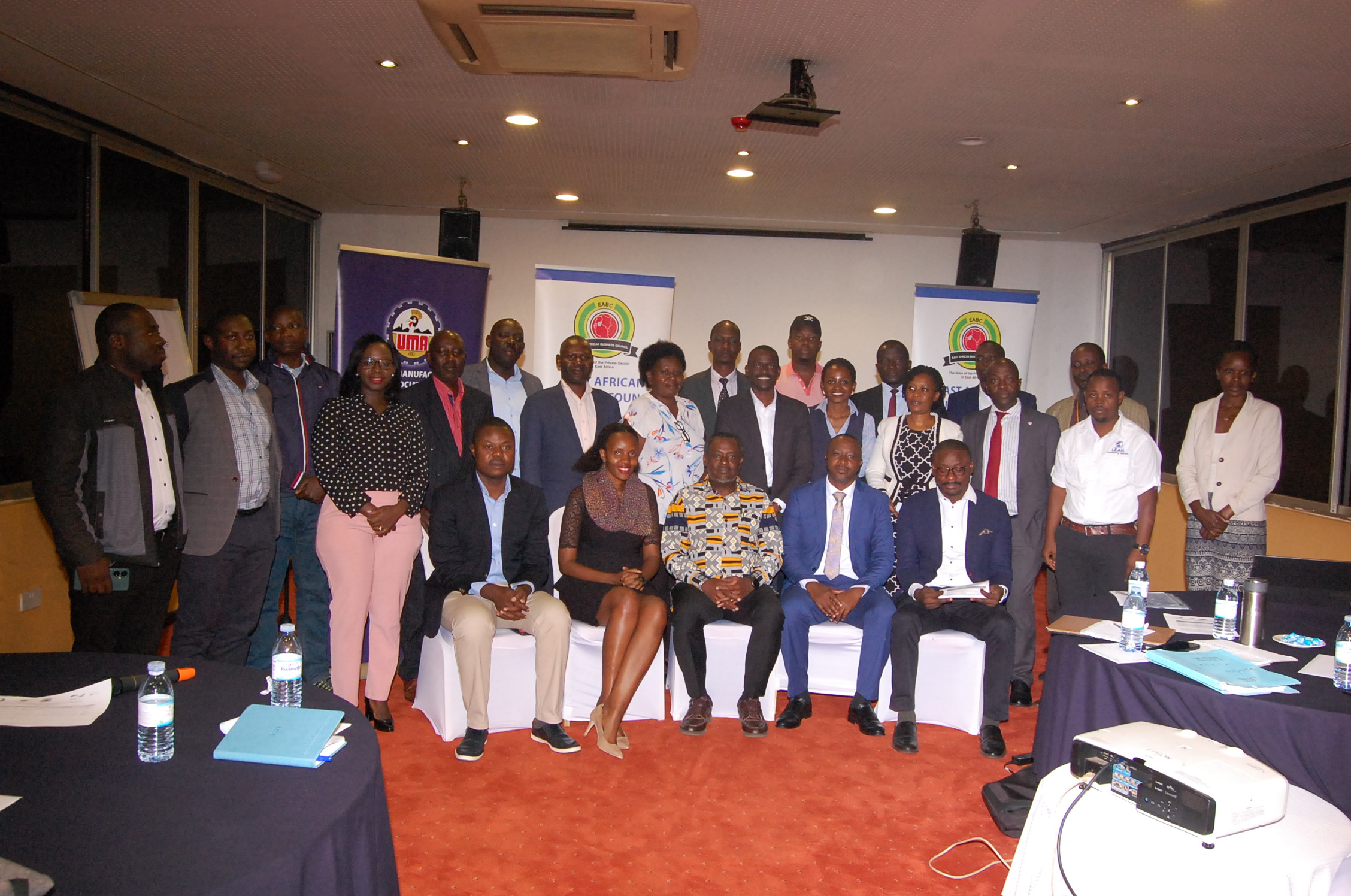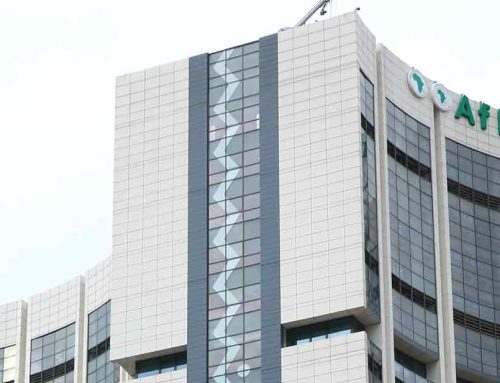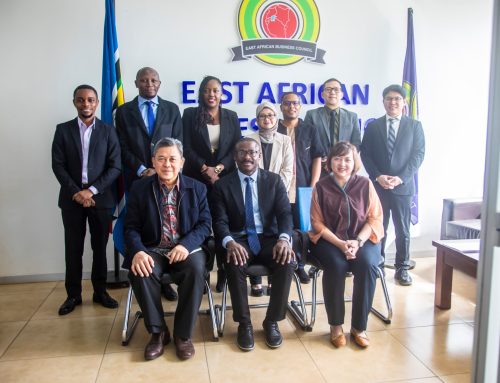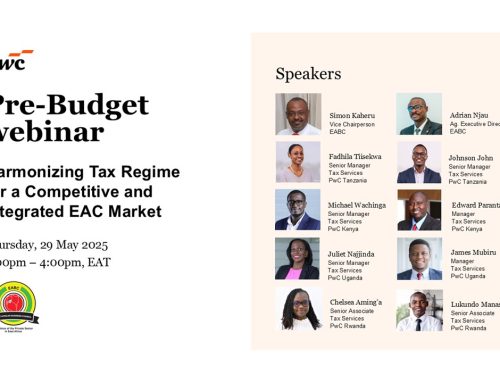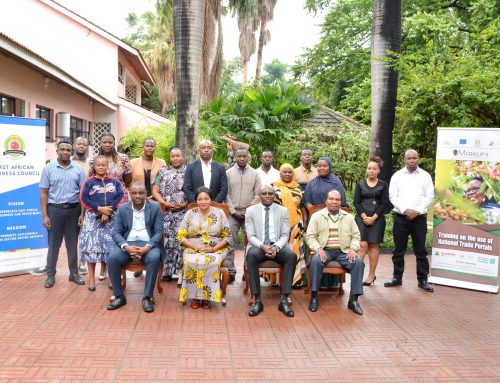Tuesday, 21st March 2023, Kampala, Uganda: –EABC Vice Chair, Mr. Simon Kaheru said, “The Implementation of African Continental Free Trade Area is projected to increase Intra-African trade significantly, especially in manufacturing.”
He expounded that the share of intra-Africa exports to total global exports will increase in Tanzania by 28%, Uganda by 29%, Rwanda by 33% and Kenya by 43%.
Mr. Kaheru said, “As Ugandan private sector we are ready to trade under the AfCFTA Guided Trade Initiative and follow our counterparts from Rwanda and Kenya who have already started trading through the agreement.”
This was during the Private Sector Sensitization Workshop on African Continental Free Trade Area (AfCFTA) Agreement on Trade in Goods Protocolorganized by East African Business Council (EABC), Private Sector Foundation Uganda (PSFU), Uganda Manufacturers Association with support from GIZ- Support to East African Integration.
EABC CEO Mr. John Bosco Kalisa said, “Uganda exports to Africa hit USD 1.77billion in 2021 increasing by 26% from USD 1.4billion in 2020 while imports stood at USD 2.47billion in 2021”
Uganda has great potential to export Coffee, Milk, and sugar, beverages, iron & steel, cooking oils, cement. Currently, Uganda’s exports of sugar to the continent is valued at USD 99.8 million and there is an untapped export potential of an additional USD 53 million of sugar exports to the continent.
EABC Vice Chair appreciated GIZ- Support to East African Integration for partnering with EABC to improve knowledge of the private sector on the AfCFTA protocol.
On his part, Mr. Lamech Wesonga, Economic Policy Advisor on AfCFTA to the EAC urged the private sector to take a proactive role by trading under the AfCFTA.
He reiterated GIZ’s commitment to partner with EAC Governments and the private sector to unlock opportunities in the 1.3 billion AfCFTA market.
The private sector workshop on AfCFTA convened 50 businesses in Uganda who learned about the AfCFTA Trade in Goods Protocol and its annexes (especially Rules of Origin, Tariff Concession and Non-Tariff Barriers) and implications to businesses in the EAC bloc.
The AfCFTA Agreement is a clear testimony that the African States have committed to doing more trade and investment among themselves. The signature of the Agreement Establishing the African Continental Free Trade Area (AfCFTA) on 21 March 2018 marked a historic milestone for economic integration in Africa with intention of creating a market of 1.3 billion people with a combined gross domestic product (GDP) valued at USD 3.4 trillion. The Agreement envisages boosting intra-African trade through the gradual elimination of tariffs on over 90 African goods and the removal of non-tariff barriers and trade restrictions on goods and services, respectively.
The EAC exports of goods to Africa stood at USD 14.7 billion composing 36% share of EAC total exports of goods to the world (USD 40.3 billion). Top EAC exports to Africa included precious stones, coffee, tea, cement, animal fats, mineral oils, copper, cobalt oxides & iron and steel. (ITC Data including DRC)
East Africa as a bloc has great potential to export copper, cobalt oxides, cereals, vegetables, tea, coffee, sugar, textile products, soap, sesame seeds, edible oils, tubers and milk to the continent.
The workshop was moderated by Mr. Adrian Njau and facilitated by Prof. Seth Gor.

